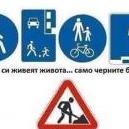FRANGLAIS, FRENGLISH
-
Подкрепете ни
За любознателните умове и свободния обмен на идеи.
Запази forumnauka.bg – имаме нужда от вашата подкрепа да съществуваме и да се развиваме.
Научи повече:
https://www.paypal.com/donate/forumnauka.bg
-
Теми
-
- 16 мнения
- 1251 views
-
Руско-украинската война 2022-2024 година. 1 2 3 4 103
От Р. Теодосиев, in Руско-украинската война 2022 година.
- 2568 мнения
- 107987 views
-
- 24 мнения
- 954 views
-
- 59 мнения
- 22252 views
-
- 31 мнения
- 463 views
-
-
Последно разглеждащи 0 Потребители
- No registered users viewing this page.





Recommended Posts
Напиши мнение
Може да публикувате сега и да се регистрирате по-късно. Ако вече имате акаунт, влезте от ТУК , за да публикувате.